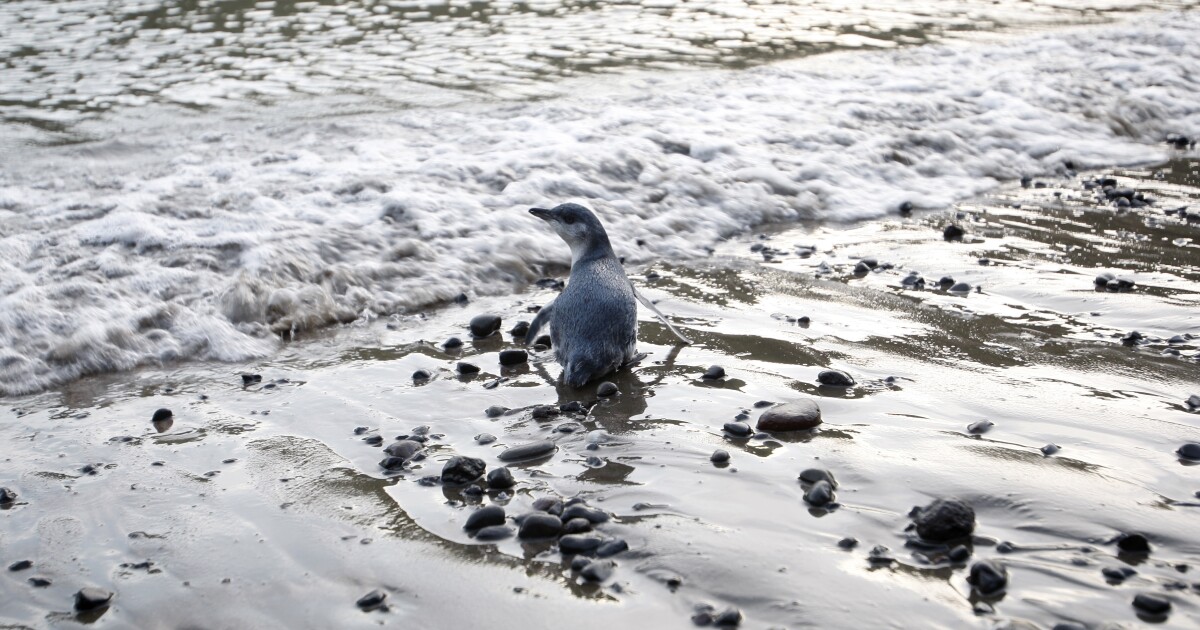

Hundreds of little penguins are washing up dead on the shores of New Zealand, which the country’s government says is the result of warmer water temperatures cutting off their food supply.
The penguins, also known as kororas or blue penguins, were tested for diseases that may have spread among the group, but researchers believe the birds all died from starvation. The massive die-off is the third instance in the last six years, with government officials faulting climate change for the lack of food.
BEES KILL DOZENS OF ENDANGERED PENGUINS IN SOUTH AFRICA
“Climate change is likely to increase the frequency of marine heatwaves. These warm-water events are likely to increase the number of poor breeding seasons for kororā in northern New Zealand,” the country’s Department of Conservation said. “As climate change effects continue, heatwaves, and other adverse weather events such as storms, will become stronger and occur more frequently. We may expect to see a corresponding increase in the amount of mass die-offs of penguin and other sea creatures.”
Mass die-offs, meaning at least 1,000 deaths, typically happen once every decade. Although the current trends are below those numbers, experts have acknowledged it is early and that a mass die-off “may yet occur.” At least 500 have washed up so far, but it’s likely more have died, scientists said.
The warmer waters may be partly attributed to the La Nina climate pattern, which causes colder temperatures in areas near the equator and warmer temperatures in places near northern New Zealand. As the oceans warm, many of the small fish the penguins feed on have retreated deeper in the water to reach cooler temperatures, going much farther than the kororas can dive.
The small birds being washed up onto the shores are mere “skin and bones,” scientists say.
“They’ve got no fat on their body. They need that insulation of the fat layer to keep them warm,” Graeme Taylor, a scientist with the New Zealand Department of Conversation, told Radio New Zealand. “And they haven’t got that [and] they haven’t got much muscle tissue on them.”
CLICK HERE TO READ MORE FROM THE WASHINGTON EXAMINER
Kororas are in the “Least Concern” category of conservation status.






